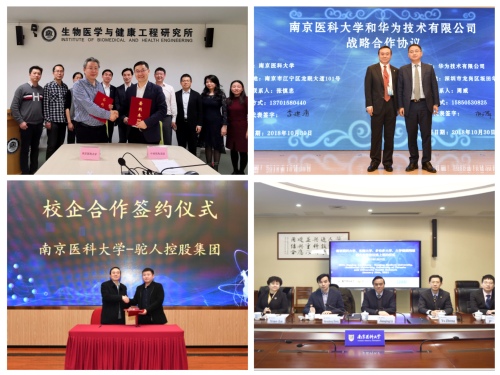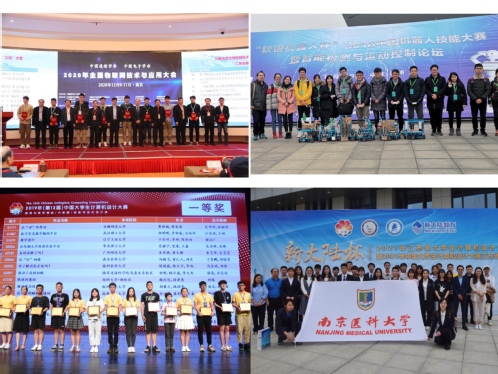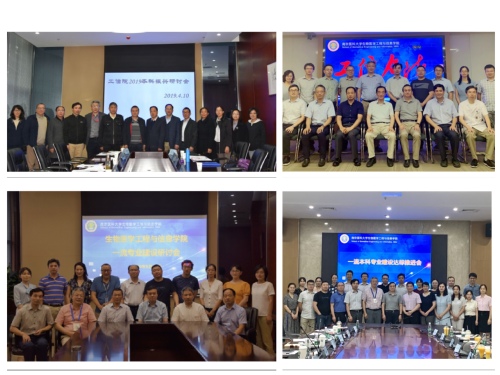Established in 2018, the School of Biomedical Engineering and Informatics, Nanjing Medical University (hereinafter abbreviated as the SBEI) is structured with 5 departments: Department of Biomedical Engineering, Department of Bioinformatics, Department of Medical Informatics, Department of Intelligent Computing and Mathematics, and Department of Medicine and Biophysics. In 2005, the biomedical engineering of SBEI was approved as a first-level master’s degree program; in 2016, SBEI established its the doctoral program integrating clinical medicine and engineering studies. In 2021, it was approved to establish the master’s degree programs in biology and medicine.

Oriented to the disciplinary construction, driven by the faculty team construction and centered around the improvement of talent training quality, the school combines medicine, science, and industry, casting the distinctive feature of coordinated development of industry, education and research. It adheres to the strategies of open-minded operation, research-empowered growth, talent-promoted growth and branded development strategies. The school has all its strength boiling down into 4 key development directions: medical biomaterials and clinical technology, advanced medical equipment, medical bio-OMICs technology, and intelligent medical engineering. Currently, there are 54 full-time faculties, most of whom are young and middle-aged teachers with the background of medicine, engineering, biology, mathematics, informatics, computer and physics and others; the school also has dozens of appointed professors and industry professors from affiliated hospitals and large enterprises.

Based on the deep integration of medicine, engineering and science, guided by biomedical information technology, the school stresses on serving the clinical needs, focuses on the development of new technologies applicable to health and medicine, and commit itself to cultivating practical “clinical-oriented’ medical-science-engineering compounded talents with a solid disciplinary base and the courage to innovate and practice. Currently, the school is structured with 3 undergraduate programs: Biomedical Engineering, Bioinformatics and Intelligent Medical Engineering. Among them, two programs (“Biomedical Engineering” and “Bioinformatics”) have been approved as national first-class undergraduate specialty programs. There are nearly 400 undergraduates and more than 70 postgraduates at the school. After graduation, the student mainly work at hospitals, universities, scientific research institutes, government agencies, and high-tech enterprises related to medical equipment, biomedicine and biomedical informatics. The school highly values cultivating the innovation and entrepreneurship awareness and abilities of students and wins many national and provincial innovation and entrepreneurship competitions and disciplinary competition awards every year.


Adhering to the integrated development of industry, education and research, the school has been strengthening the commercialization of scientific research results based on the two platforms (“Nanjing Medical University-Southeast University Medical Engineering Cross-Innovation Research Institute” and “Jiangsu Provincial Institute of Translational Medicine”). It has entered into strategic cooperation with Huawei Technologies Co., Ltd., Lenovo Group, Mindray, and other large companies to connect with industry leaders and drive the school-enterprise cooperation; it signed a four-party cooperation agreement with Southeast University, the University of Toronto in Canada, and the University Health Network (UHN); established cooperative relationships with well-known foreign universities such as Duke University, MD Anderson Cancer Center, University of Texas Houston Health Science Center, Wayne State University, and University of Dundee (UK) to cultivate internationally competitive talents in biomedical engineering.



